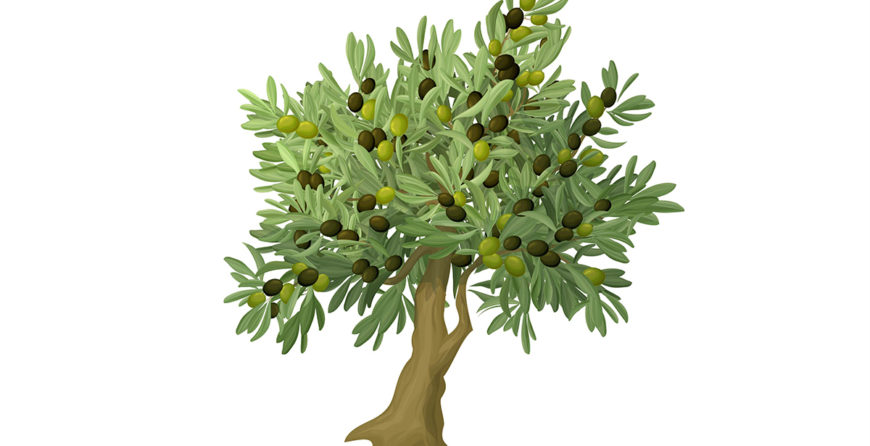The olive tree and its olives and olive oil, since the mythological years are connected to rituals and religious ceremonies. There are many legends about the origination of the olive tree.
One legend says that it was brought to Greece by the gigantic deities, the Curetes, who originally came from Evia and are known from the birth of Zeus. The Curetes were five brothers who were appointed by Rhea to guard the baby god Zeus in the cave of Mount Ida in Crete, from his own cannibalistic father, the Titan Kronos, who had received a prophecy that one of his children would overthrown him. It was crusial that he did not know Zeus was born, otherwise the baby would be in danger.
Rhea, the daughter of Titan Uranus and goddess Gaia, was terrified that Kronos would hear the baby crying, so she send the Curetes to stand outside the cave, bang their shields together and beat their drums, making a noise that covered all others.
Bringing the olive tree to Greece from Crete, they are considered the benefactors of people in the Mediterranean region. They also planted a wild olive tree in Olympia and the Olympic Games were dedicated to them. The first Olympic Games were held among them and the winner was crowned by Hercules, with a wreath made from the branches of the olive tree. The crowning with an olive wreath continued for many-many years later.
Another legend says that Hercules, the hero of the Greek mythology, brought the olive tree from the banks of Danube river to Olympia and the rest of Greece.
Hercules also known for his Twelve Labors, commanded by his famous cousin Eurystheus, in order for his sins to be forgiven, after he killed his family in a fiery feud. Heracles killed the Lion of Nemea which was ravaging the area and was the fear and terror in the area. He used clubs and stakes made of olive wood to capture his enemies. After the capture he strungled or killed them with his bare hands. Since then the olive tree is associated with strength, power and resistance.


